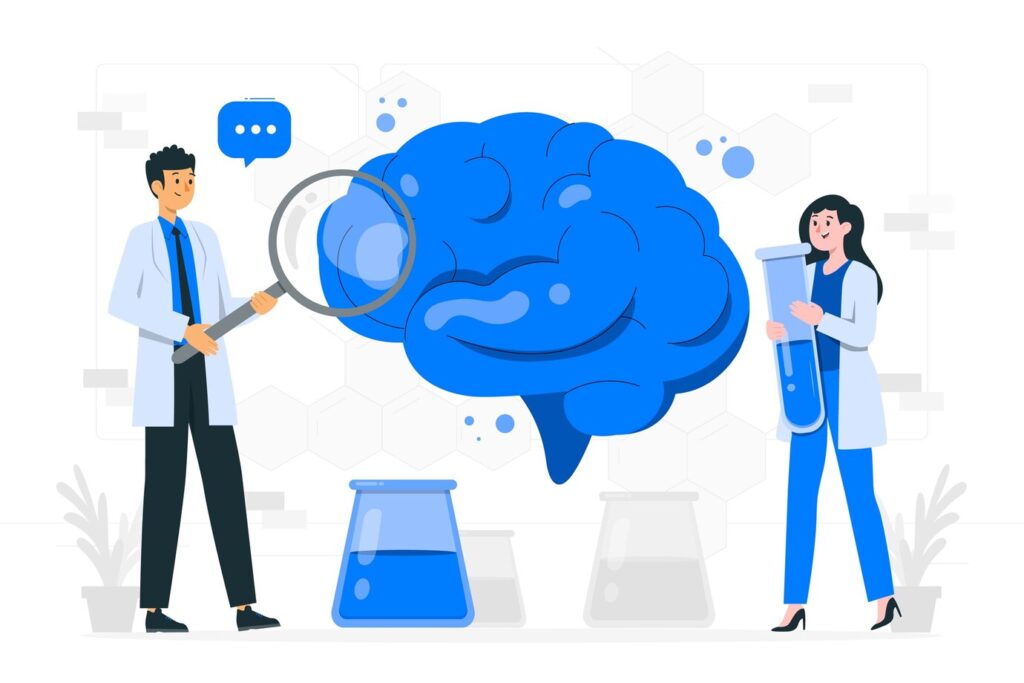1) Introduction
Forensic Psychology, a critical Convergence of Psychology and the Legal system will obtain importance in 2024. This field is Essential in Identifying criminal behavior, helping law Enforcement Agencies, and Guaranteeing justice. Forensic Psychologists Evaluate Criminal Personalities, give master Declarations, and Contribute to the Restoration of guilty parties. The Significance of Forensic Psychology in the criminal justice system couldn’t possibly be more significant, as it assists with Revealing thought Processes, Assessing Skills, and expecting future offenses. In 2024, Progressions in Innovation and Exploration are driving recent trends in Forensic Psychology, for example, further developed Profiling procedures, better risk Evaluation Tools, and Upgraded helpful Mediations. Remain informed on the most recent Advancements in this Progressively Developing Field.

2) What is Forensic Psychology?
- Definition and Scope: Forensic Psychology is a field that combines Brain Science and the legal system. It includes Grasping mental standards and Applying them to lawful issues, Frequently including criminal and common cases. Forensic Psychologists work in different settings, including courts, prisons, and law Enforcement Agencies.
- Difference: While Forensic Psychology and Criminal Psychology are firmly related, they are unique fields. Forensic Psychology centers on the Convergence of Psychology and the Law, Encompassing a wide scope of genuine issues. Criminal Psychology, then again, clearly concentrates on the investigations, goals, activities, and ways criminals behave. Forensic psychologists might survey skills, give treatment to crime Casualties, or offer master Declarations, while criminal psychologists normally profile criminals and help with criminal investigations.
- Role: Forensic psychologists assume an urgent part of the Justice system. They direct Assessments to decide a Respondent’s Mental Competency, give a master Observer Declaration, and help jury choice. They likewise work with Survivors of crime, offering backing and treatment, and might linked with the Restoration of guilty parties. Their Expertise guarantees that mental bits of knowledge are properly applied inside the legal system.
3) Education and Requirements for Forensic Psychologists
- Certifications: Becoming a Forensic psychologist requires a Doctoral certificate in Psychology (Ph.D. or on the other hand Psy.D.) and particular preparation in Forensic Psychology. Licensure as a psychologist is Fundamental, which means Finishing the Examination for Professional Practice in Psychology (EPPP).
- Requirements: Forensic psychologists should have major areas of strength in both Psychology and the legal system. This Incorporates Figuring out criminal behavior, Legal Principles, and successful Correspondence inside the Forensic Framework. Proceeding with Schooling is vital to remain Refreshed with Headways in the field.
- Degrees and Programs: Various Colleges offer specific Programs in Forensic Psychology at the Alumni level. These Programs join Coursework in Psychology, Law Enforcement, and Legal Investigations. Temporary positions and managed Clinical Involvement with Forensic Settings are in many cases part of these Programs.
- Significance: While a Degree in Forensic Science isn’t Compulsory, it very well may be helpful. Forensic science information supports Figuring out the Specialized parts of criminal investigations, Upgrading a Forensic Psychologist’s Capacity to investigate proof, and giving a Master Declaration.
4) What are the Key Areas of Forensic Psychology?
- Forensic Criminology: This field includes Analyzing crime locations, Gathering proof, and Focusing on crime Trends to foster profiles of crimes. Experts work closely with Law Enforcement Agencies to think up Methodologies for crime Avoidance and to Comprehend the basic factors that Contribute to criminal behavior. Their work is Imperative in creating Convincing arrangements and Mediation to lessen crime Percentages.
- Criminal Psychology: It is an urgent area of Forensic Psychology that Spotlights the Considerations, ways of Behaving, and Inspirations of criminals. It includes Profiling Wrongdoers to foresee their best courses of action and helping Law Enforcement Agencies tackle Violations. Criminal psychologists Frequently work with police to give bits of knowledge into criminal behavior, Assisting with Reducing suspects and expecting future offenses. Their Expertise is Fundamental in Grasping the Mental parts of Criminal actions and Rehabilitating Offenders.
- Forensic Toxicology: This type includes the Examination of bodily fluids and tissues to Distinguish the presence of drugs, liquor, harm, and other Poisonous Substances. Forensic Toxicologists assist with Deciding if Substances added to an Individual’s demise or Weakened their Capacities. Their work is basic in instances of thought harming, drug going too far, and Disabled driving episodes. It gives critical proof in both Lawbreaker and common cases, it is guaranteed justice.
- Forensic Anthropology: This branch is the investigation of Human Skeletal parts to decide the character, reason for death, and other Essential data about dead people. Forensic Anthropologists assume a huge part in criminal investigations, particularly in cases including Unidentified remaining parts. They utilize their skill to Recreate the occasions Prompting an Individual’s demise and to help with Distinguishing Casualties. This field is Fundamental for settling cold cases and giving conclusions to groups of missing people.
Summary
Forensic Psychology Envelops different particular fields, each assuming a Fundamental part in the criminal justice system. From understanding crook psyches to investigating actual proof, these regions Contribute essentially to addressing crimes and guaranteeing justice.

5) What is Forensic Science and Its Combination with Forensic Psychology?
Definition and Branches of Forensic Science
Forensic science is the use of logical standards to support criminal investigations. It Incorporates different Branches, including Forensic Pathology, Toxicology, and DNA Examination. Each branch assumes a basic part in settling crimes by giving goals, and logical proof.
Role of a Forensic Science Technician
A Forensic science Technician is Fundamental in crime investigations. They gather, analyze, and decode actual proof from crime locations. Their careful work guarantees that proof is precisely handled and introduced in court, assisting with laying out current realities and backing the judicial process.
Significance of Forensic Labs in Investigations
Forensic labs are essential in the investigative process. These labs are furnished with trend-setting innovations and tools that empower the exact investigation of proof. From DNA sequencing to compound examination, Forensic labs offer basic help in recognizing suspects and revealing pivotal subtleties that could somehow or another be missed. This combination of science and regulation is major to present-day Forensic investigations.
6) What is Digital Forensics and Its Growing Importance?
Definition and Scope of Digital Forensics
Digital forensics includes the distinguishing proof, conservation, assessment, and examination of computerized proof. This field incorporates a large number of electronic gadgets and media, including PCs, cell phones, and organizations. It assumes a critical part in criminal investigations, corporate security, and official procedures, guaranteeing that computerized proof is precisely and lawfully obtained and introduced.
Role of a Digital Forensics Investigator
A Digital forensics Investigator is responsible for gathering and separating advanced information to uncover proof connected with crimes, information breaks, and other digital occurrences. They should follow severe conventions to guarantee the honesty of the proof, frequently working closely with law enforcement agencies, lawful groups, and corporate security departments. Their ability is fundamental in addressing violations, preventing cyber-attacks, and safeguarding touchy data.
Differences between Cyber Forensics and Computer Forensics
While both cyber forensics and Computer forensics fall under the umbrella of digital forensics, they have unmistakable core interests. Cyber Forensics manages examining cyber-crimes, for example, hacking, phishing, and malware assaults, frequently including organizations and web-based exercises. Computer forensics, then again, centers on recovering and investigating information from individual PCs and capacity gadgets, for example, hard drives and USB drives. The two fields are basic in fighting advanced crime and guaranteeing information security.
Digital forensics keeps on filling in significance as innovation propels and digital dangers become more modern. Its part in keeping up with computerized respectability and security couldn’t possibly be more significant.
7) Which Tools and Techniques are used in Forensic Psychology?
Common Forensic Tools Used in Investigations
In the domain of Forensic Psychology, a few devices are critical for revealing reality. Polygraphs, or untruth indicators, assist with surveying honesty, while Forensic meetings remove fundamental data from witnesses and suspects. Mental post-mortem investigations dig into the psychological condition of dead people, and profiling helps with distinguishing potential suspects given personal conduct standards.
The Role of Digital Investigation in Modern Forensics
The digital investigation has altered current Forensic Psychology. With the approach of modern innovation, Forensic specialists can investigate computerized effects on gadgets like PCs and cell phones. Tools like Digital forensics programming assist with recovering erased information, tracking online exercises, and uncovering proof that may be significant in addressing cases. This advanced angle is fundamental in the present interconnected world, where cybercrimes are progressively common.
How do Forensic Tools Aid Forensic Analysts?
Forensic tools are key for specialists. They give logical precision and objectivity, fundamental for judicial actions. These devices help in remaking crime locations, grasping the mental profiles of guilty parties, and laying out timetables. By coordinating customary and advanced Forensic devices, specialists can introduce far-reaching proof in court, thus way improving the possibilities of accomplishing justice.
Understanding the tools and methods in Forensic Psychology is essential for anyone with any interest in the field. These tools help in addressing crimes as well as guarantee that the investigative process is exhaustive, precise, and experimentally sound.

8) What are Career Paths in Forensic Psychology?
Becoming a Forensic Psychologist
To become a Forensic Psychologist, one ordinarily needs a doctoral certificate in Psychology, specific preparation in Forensic Psychology, and significant licensure. This profession includes working intimately with the legal system to survey and treat criminal behavior, give master declarations, and direct exploration.
Roles of a Forensic Computer Analyst and Digital Private Investigator
A forensic computer analyst plays a pivotal role in examining digital evidence related to cybercrimes. Specifically, these crimes include hacking, fraud, and data breaches. Furthermore, their work involves collecting, analyzing, and interpreting data. As a result, they help law enforcement understand complex cyber incidents. Ultimately, their expertise is crucial in building cases against cybercriminals. They utilize particular programming to recuperate erased documents, follow advanced impressions, and analyze information. Digital Private Investigator, then again, centers on uncovering proof for private cases, like betrayal or corporate surveillance. The two Roles are serious areas of strength for required abilities and an exhaustive comprehension of computer forensics.
Job Outlook and Opportunities in Forensic Science Universities
The work viewpoint for vocations in Forensic Psychology and related fields is promising. With the rising dependence on advanced innovation, the interest in Forensic Computer analysts and digital private analysts developing. Forensic science Universities offer different Programs and open doors for hopeful experts to acquire the essential abilities and information, guaranteeing a consistent pipeline of qualified possibilities for these crucial Roles.
9) Online Education and Training in Forensic Psychology
Availability of Forensic Psychology Online Courses
Forensic Psychology online courses are broadly accessible, giving available education choices to understudies around the world. Numerous trustworthy colleges and organizations offer complete Programs that cover fundamental themes in Forensic Psychology.
Benefits of Online Education for Aspiring Forensic Psychologists
Online education offers adaptability, permitting understudies to offset their investigations with individual and expert responsibilities. It gives admittance to an abundance of assets and master educators, working with an exhaustive comprehension of Forensic Psychology standards.
Suggested Programs and Certifications
Trying Forensic psychologists can profit from signing up for certified Programs, for example, the Forensic Psychology Declaration from John Jay School of Law Enforcement or the web-based Experts in Forensic Psychology from the College of North Dakota. These Programs offer vigorous educational plans and important confirmations to propel your profession in Forensic Psychology.
10) Case Studies and Real-world Applications of Forensic Psychology
High-Profile Cases Addressed with Forensic Psychology
Forensic Psychology plays had a pivotal impact in settling various high-profile cases. One well-known model is the BTK Killer case, where Forensic psychologists helped profile the culprit, eventually prompting his catch. Another huge case is the Unabomber Investigation where Forensic Psychology methods were utilized to grasp the crook’s mentality and thought processes.
Role of Forensic Psychology in Court Cases
In Court Cases, Forensic psychologists give master declarations that can impact the result of preliminaries. They survey the psychological condition of respondents, deciding their skill to stand preliminary and sharing bits of knowledge about their behavior. This skill is essential in cases including madness requests, where the psychologist’s assessment can decide whether a respondent ought to be considered responsible for their activities.
Commitments of Forensic Psychologists to Criminal Investigations
Forensic Psychologists contribute to criminal investigations by offering social profiles of unclear guilty parties. How they might interpret criminal ways of behaving assists law enforcement agencies with reducing suspects and predicting future activities. Moreover, they help with meeting observers and suspects, utilizing mental procedures to inspire honest data.
Forensic Psychology’s coordination with the criminal justice system has altogether upgraded insightful and judicial processes. By applying mental standards to legal issues, Forensic psychologists keep on making important commitments to settling violations and conveying justice.

11) What are Future Trends and Progressions in Forensic Psychology?
Emerging Technologies in Forensic Science and Digital Forensics
Forensic Psychology is quickly developing with progressions in innovation. Arising tools, for example, AI-driven algorithms and improved Digital forensics are revolutionizing the field. AI intelligence is currently being utilized to analyze immense measures of information, distinguish examples, and help criminal profiling. Furthermore, improvements in digital forensics empower more exact following of cybercriminal exercises, working on the capacity to tackle advanced crimes.
Predictions for the Future of Forensic Psychology
Looking forward, Forensic Psychology is supposed to coordinate significantly more modern advances. Prescient examination and AI will probably assume a vital part in breaking down criminal behavior and surveying risk factors. Upgraded augmented experience reforms could be utilized for preparing and remaking crime locations. These advancements promise to build the accuracy of mental evaluations and further develop case results.
The Evolving Role of Forensic Technicians and Analysts
The Role of Forensic professionals and Analysts is likewise advancing. With the joining of new advances, these experts should secure high-level abilities in computerized devices and information examination. Continual education and variation will be fundamental as Forensic Psychology meets more with tech-driven approaches. This shift will upgrade their capacity to contribute significant bits of knowledge and proof in Forensic actions.
12) Conclusion
Forensic Psychology assumes a vital part in overcoming any barrier between Psychology and the criminal justice system, offering significant experiences in criminal behavior and legal cycles. As we travel through 2024, the field keeps on developing, embracing new advances and philosophies to improve its adequacy. If you’re energetic about Psychology and justice, an ability in Forensic Psychology can be unbelievably fulfilling, offering chances to have a huge effect on people and society. Embrace the eventual fate of Forensic Psychology, where progressions vow to shape how we comprehend and address criminal behavior. For those interested in this unique field, this present time is the ideal opportunity to investigate its prospects and contribute to its development.
13) FAQs
ANSWER: Forensic Psychology includes applying mental standards to legal issues, frequently working with law enforcement agencies on the Forensic framework to figure out criminal behavior and help investigations.
ANSWER: A Forensic psychologist regularly needs a doctoral certificate in Psychology, specific preparation in Forensic Psychology, and relevant Degrees or licenses to rehearse.
ANSWER: Digital forensics centers on recovering and breaking down information from electronic gadgets to help investigations, while Forensic Psychology manages the mental parts of criminal behavior and lawful cycles.
ANSWER: Forensic Psychologists might lead appraisals, give master declarations, work with casualties and guilty parties, and help with criminal profiling and investigations.
ANSWER: Indeed, many licensed colleges offer web-based programs in Forensic Psychology, giving adaptability to understudies to remotely acquire their Degrees and confirmations.
ANSWER: Forensic investigations use unique mark investigation packs, DNA sequencers, advanced Forensic programming, and mental evaluation instruments to assemble and analyze proof.


